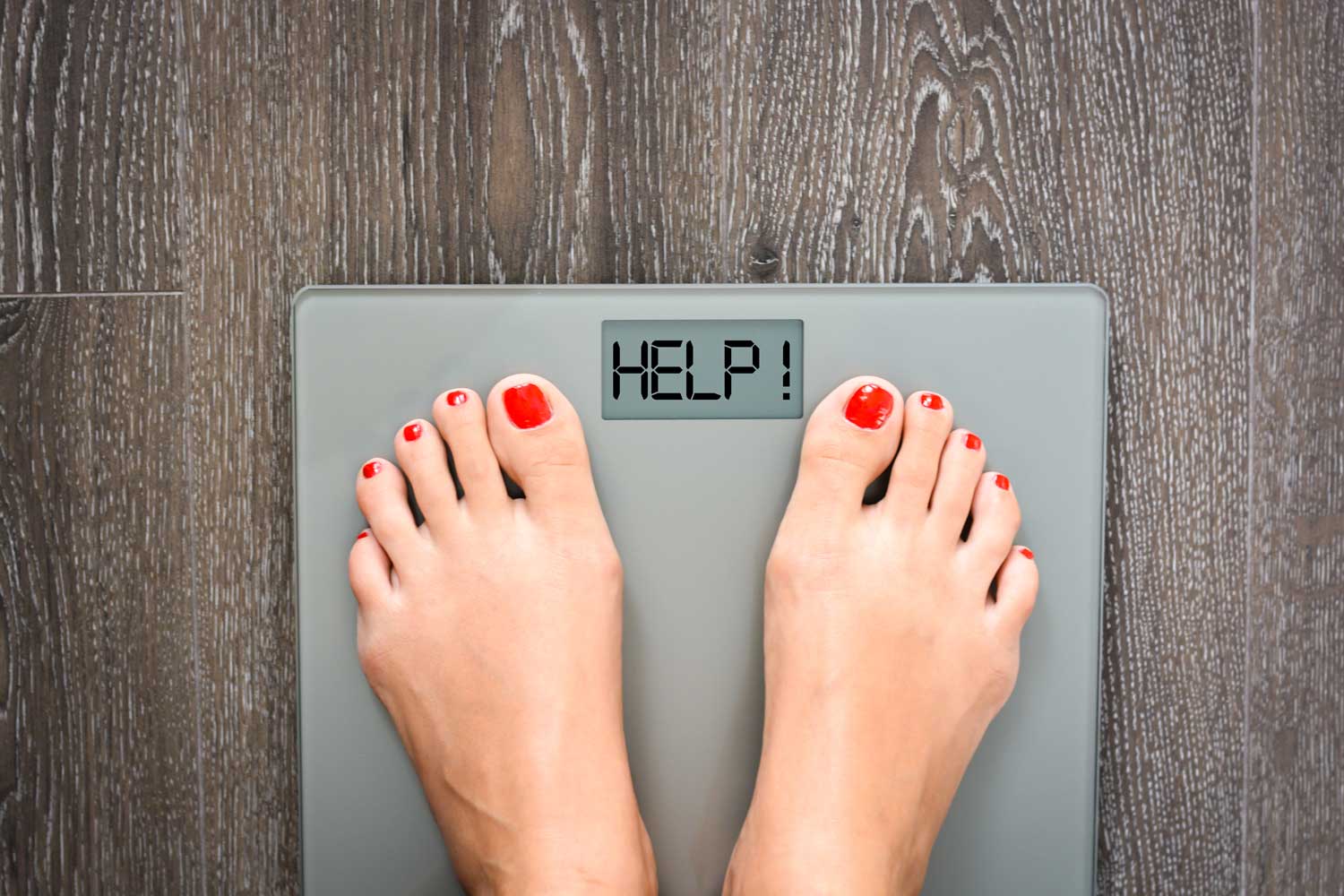by Levi Memmer
In a week or so, many Americans will set New Year’s resolutions to lose weight…again. Last year didn’t workout but this year will be different. Unfortunately too many of us will turn to crash diets, fad diets and/or super low calories diets that work really well for a short time but come to a bitter end with weight regain. You see, weight loss is not the problem. Six out of every seven people who try to lose weight succeed. The issue is sustainability. Within one year 50-70% will regain all of the weight that they lost. Within two years 85% will regain all of the weight they lost. Within 3 years 95% will regain all of the weight they lost. Between 1/3 and 2/3 of people who lose weight will regain even more weight than they lost during the diet. So how do you diet for sustainable, long lasting, healthy weight loss? How do you put yourself in the 5% that doesn’t gain everything back within three years? I give you The Ten Commandments of Sustainable, Long Lasting, Healthy Weight Loss. (One important note: ‘diet’ isn’t a bad word. It’s the food you eat. That’s it.)
1. Thou shalt assume and maintain the right mindset
Nothing you can do in regard to weight loss will work unless you approach it with the right mindset. A mindset of gratitude, positivity and abundance. Get rid of the negative mindset. Get rid of the scarcity mindset. You have enough time. You have enough energy. You can do this.
2. Thou shalt control calories
Weight loss ultimately comes down to calories in versus calories out. You have to burn more calories than you consume over the long term. You absolutely will not lose weight if you are not in a caloric deficit. All diet strategies – paleo, weight watchers, keto, flexible dieting, intermittent fasting and many many more – they all work because they ultimately put you in a caloric deficit. Which weight loss dietary strategy or combination of strategies is best for you really comes down to three things: 1) it should put you in slight caloric deficit, 2) it should improve your overall health and 3) you have to be able to stick to it long term. How many calories does your daily double caramel mocha frappe latte with extra pumps and extra whip have? Do you know? If not, losing weight is going to be very difficult.
3. Thou shalt be consistent
So many people do great with their diet during the week only to fall off the wagon, drag it into the woods and set it on fire. As I outlined above, you MUST be in a caloric deficit to lose weight. Let’s say you create a 500 calorie deficit each week day. That’s 2500 calories total for those five days. A pound of fat is 3500 calories so if you were to keep that 500 calories deficit over the weekend, you’d lose a pound of fat that week. But your friends are going for drinks on friday night so you’ll drink a few margaritas, lowering that caloric deficit to 2000. Your family goes out to eat Saturday night and you just can’t do that without lots of chips, salsa and a few more margaritas. That caloric deficit is now down to 500 calories. The post church brunch is most certainly going to put you in a calorie surplus which will cause you to gain weight. Does that scenario sound familiar? I see it all the time. A perfect week is completely wiped out, plus some, due to lack of consistency. Notice “perfect” or “perfection” is nowhere to be found in this section? You’ll never achieve perfection in any area of weight loss but you can most definitely achieve consistency.
4. Thou shalt play the long game
When most people set out on a weight loss journey, they expect immediate and spectacular results. Mentally, they grasp the idea of playing the long game. Emotionally, they are typically much less realistic. We as Americans live in a microwave society. We want same day shipping, instant access and instant gratification. The super tricky thing about weight loss is that you can see immediate, spectacular results by way of crash diet, but that’s not conducive to healthy, sustainable, long lasting weight loss. By playing the long game the results won’t be as spectacular in the beginning but will be much more spectacular and much healthier months and years into your weight loss journey. I tell all participants of our six week Fat Loss for Life program, “The next six weeks absolutley matters, but it doesn’t matter as much as following six weeks or six months or six years.” Play the long game!
5. Thou shalt consume adequate protein
If weight loss is your goal, protein should most certainly be a cornerstone of your diet strategy. Hunger control is of the utmost importance for dieters and protein is the most satiating macronutrient (carbs and fat being the other two macronutrients). It will help you feel more full for longer than carbs or fat of equal calories. Muscle loss can be an issue while dieting for weight loss as it results in reduced strength as well as reduced metabolism. Adequate protein intake can help maintain the muscle that you already have and possibly even help you gain a bit of muscle. Another super cool benefit of adequate protein intake, especially since achieving a caloric deficit is a must for weight loss, is how many calories you burn just digesting protein. We call this the thermic effect of food (TEF). The TEF of protein is around 25-30%, meaning that if you ate 100 calories of protein, you’d burn 25-30 calories just to digest it. The TEF of carbs and fat is 6-8% and 2-3% respectively. Mix a healthy amount of meat, eggs and fish into your diet to achieve adequate protein intake.
6. Thou shalt consume adequate fiber
There’s a mountain of evidence that adequate fiber intake is one of the best things you can do for your gut health, overall health and longevity. Fiber, like protein, is also very satiating. Again, hunger management is critical to long lasting, sustainable weight loss. Mix lots of vegetables, some fruits and some nuts into your diet to increase fiber intake.
7. Thou shalt strength train
When it comes to exercise, strength training is KING. No other form of exercise has a list of benefits as extensive as strength training. Want to gain muscle? Strength train. Want to get stronger? Strength train. Want to improve joint health? Strength train. Want to lose weight? Strength train. In regard to exercising for weight loss, strength training should be the main priority. As mentioned earlier, maintaining and possibly even gaining muscle while losing weight is optimal. The more muscle you can maintain, the more calories you burn at rest (metabolism). Strength training is the only way to possibly maintain muscle as you lose weight. Strength training also helps with blood sugar regulation which helps with weight loss in a roundabout way. Keep in mind, strength does not necessarily mean lifting heavy weights. There are many tools and methods to train for strength. Also, because I know you’re probably thinking it, strength training DOES NOT make you bulky. Too many calories makes you bulky.
8. Thou shalt get adequate sleep
You’re not always going to feel like working out. You’re not always going to feel like eating according to your weight loss goals. Now imagine how much stronger those feelings will be when you’re tired and cranky. Not the best recipe for weight loss. You’re more likely to snack at night when you’re tired. You’re more likely to lean toward carby foods when you’re tired. As an aside, carbs aren’t the devil like most people think, but most of them are delicious which means you’re more likely to overeat calories from carbs. You’re more likely to eat bigger meals when you’re tired. Lack of sleep also has a negative impact on hormones like insulin and a few others. We could just summarize by saying that in regard to weight loss, lack of sleep has no upside.
9. Thou shalt consume adequate water
Most people have issues determining whether they are hungry or thirsty. I know it sounds crazy, but many times a person will feel hungry when they are in fact dehydrated. Staying hydrated will soften this issue. Another issue with dehydration is that it’s the leading cause of daytime fatigue. See above for how being tired impacts weight loss. Adequate water intake can help with energy throughout the day as well as energy during your workouts. The more energy you have during workouts, the more likely you are to put in full effort. You’re also more likely to stay consistent with workouts if you have good energy in and around them.
10. Thou shalt not be a cardio queen
Long, slow cardio is overrated for weight loss. There I said it. Don’t get me wrong, cardio is valuable in other ways. It’s great for your cardiovascular system. But for some reason, most people assume you just need to do more cardio to lose weight. It does burn calories and you can lose weight using cardio as your form of exercise. Long, slow cardio has a very low return on investment though. If you look at the time invested versus calories burned and other benefits gained, long, slow cardio has a lower ROI than strength training, high intensity interval training, pilates, yoga and pretty much every other form of exercise. All of that said, if long, slow cardio is the only form of exercise you enjoy, by all means do it. It’s still better than no exercise at all.
There you have it! The ten commandments of healthy, long lasting weight loss. It’s simple but definitely not easy. Will you be perfect in each area all the time? Nope! Should you be perfect in each area all the time? Probably not. But in the words of the great strength and conditioning coach Dan John, “Pretty good is pretty good and pretty good will get you a long way.” If you can be pretty good in most of them, most of the time, you’ll make very sustainable progress. Work toward progress and consistency, not perfection!






